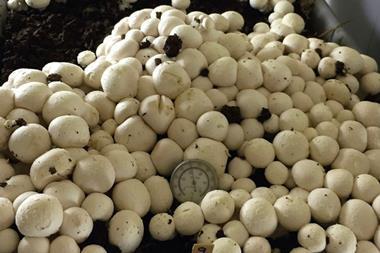Draft directive would let countries choose whether to ban the cultivation of genetically modified crops
A draft directive approved by the European council of environment ministers would allow member states to go it alone and ban the cultivation of genetically modified (GM) crops without the need to follow the lead of the EU. The plan has come in for harsh criticism from both supporters and opponents of GM crops.
The directive, which still needs European parliament approval, says potential grounds for member states to restrict or prohibit GM crops would include ‘environmental reasons, socioeconomic reasons, land use and town planning, agricultural policy objectives and public policy issues’. However, public health could not be used as grounds to ban GM crops. The directive would not affect the assessment of genetically modified organisms by the European Food Safety Agency, which must certify their safety before they can be approved.
Battle lines are now being drawn as parties on both sides of the issue prepare for the parliamentary debate.
Bart Staes, a member of the European parliament’s green grouping, called the directive a ‘Trojan horse’ that will open the door for GM crops across Europe. Liz O’Neill, director of the UK group GM Freeze, said: ‘EU environment ministers have waved through a deeply flawed proposal to the next stage because [UK environment secretary] Owen Paterson and friends think it’s more important to get GM crops into the ground than to protect people’s right to say no.’
Brandon Mitchener, spokesman for Monsanto, responded: ‘To suggest that [the directive] opens the floodgates to GM seed cultivation in Europe is ludicrous.’ Mitchener also issued a statement claiming that the EU had ‘buried science’ and put populism before the facts.
Monsanto’s GM maize MON810 is currently the only GM crop cultivated in Europe. However, frustrated with barriers in Europe, the company announced last year that it would not pursue any new biotech crop approvals in Europe.
The draft directive, which is supported by the European commission, was approved on 12 June by environment ministers from 26 of the 28 EU member nations. Ministers from Belgium and Luxembourg abstained. After formal adoption by the council, expected in July, the directive will be passed to parliament for debate.
In 2011, parliament overwhelmingly approved a draft amendment that would allow member states to ban GM crops. However, EU environment ministers did not support the draft amendment and a compromise could not be reached.
A parliament source tells Chemistry World that parliament would be unlikely to approve the new directive in its current form. They describe the GMO issue as a ‘high priority’ item, adding that both sides would like to have an agreement by the end of the year.
Mitchener says that the draft directive in its current form would most likely not convince Monsanto to reverse its decision withdraw from the European GM market. ‘If any government can enact a ban for any reason, at any time, there is absolutely no incentive for a company such as Monsanto or any of its competitors to invest in research, development, marketing, sales,’ he says.












No comments yet